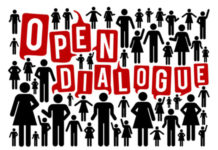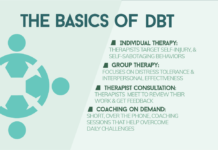How Does Mindfulness Work?
A new study explores how mindfulness impacts self-compassion and meaning in life to increase mental health and wellbeing.
Can a Conceptual Competence Curriculum Bring Humility to Psychiatry?
Training for conceptual competence in psychiatry provides a new way forward to address theoretical and philosophical issues in mental health research and practice.
Opening Doors in the Borderlands: An Interview with Liberation Psychologist Mary Watkins
MIA’s Micah Ingle interviews Mary Watkins about reorienting psychology toward liberation and social justice.
Experiences of Depression Connected to Declining Sense of Purpose
In-depth interviews find that those who screened positive for depression did not explain their experience in terms of diagnostic symptoms.
Why is the Field of Psychotherapy Still Fractured into Different Approaches?
Psychotherapy is dominated by contradicting schools of thought, exhibits a gap between research and practice, and repackages old ideas rather than finding clinical consensus.
Parachute NYC Peer Support Program Presents Challenges and Opportunities
Anthropologists study Parachute NYC to identify challenges and opportunities for implementing peer support and Open Dialogue practices.
A Biopsychosocial Model Beyond the Mind-Body Split
Can a renewed biopsychosocial approach, grounded in an updated philosophy, foster person-centered medicine, and psychiatry?
How to Involve Youth in Their Own Mental Health Care
Clinicians play a key role in empowering adolescents and their parents to make decisions about their mental health treatment.
Psychiatrist Describes Role in Open Dialogue Model of Care
Psychiatrist outlines varying roles in Open Dialogue model, fostering service-user and family agency through meaningful conversations with a team of providers.
Yoga and Mindfulness Benefit Youth with Autism Spectrum Disorder
A new review finds preliminary evidence for yoga and mindfulness-based interventions for youth diagnosed with Autism Spectrum Disorder (ASD).
Third Time Lucky: Open Dialogue and Finding Meaning in My Inherited Trauma
A year after my twin’s death, I stood in a supermarket and felt my body disintegrating into a thousand pieces. My soul knew it needed the right teacher and helper. Fortunately, I found Open Dialogue. It helped me expose the real childhood trauma, and gradually rebuild my shattered, grief-stricken psyche.
Valuing Posttraumatic Growth in Psychosis
Individuals who experience psychosis can also experience posttraumatic growth, which can be a central component of the recovery paradigm.
Mental Health Recovery Narratives Play Central Role in Trauma-Informed Care
New research synthesizes insights from 45 studies to construct a conceptual framework relating different elements of recovery narratives to trauma-informed approaches to care.
There is More to Mindfulness than the Brain
According to Lifshitz and Thompson, mindfulness is best understood as “complex orchestration of cognitive skills embodied in a particular social context.”
When Does it Help to Have Background Information in Child-Centered Play Therapy?
Knowing the client’s history can help foster genuine empathic responding, a key component to child-centered play therapy.
The Role of Context, Language, and Meaning in Hearing Voices
Sociocultural context, language, and sense-making process are among concepts that can help hearers and providers better understand the phenomenon of hearing voices
First-Person Accounts of Madness and Global Mental Health: An Interview with Dr. Gail Hornstein
Dr. Gail Hornstein, author of Agnes’s Jacket: A Psychologist’s Search for the Meanings of Madness, discusses the importance of personal narratives and service-user activism in the context of the global mental health movement.
Psychology Must Become a Sanctuary Discipline to Heal Racial Trauma
Researchers explore pathways of healing racial trauma in Latinx immigrant communities.
Dialectical Behavior Therapy Reduces Self-Harm and Suicide Attempts
A new meta-analysis finds that DBT reduces self-harm, suicide attempts, and reduces the frequency of psychiatric crisis service utilization.
New Book Deconstructs Ideology of Cognitive Therapy
CBT forwards a hyper-rational perspective of human suffering that complements a managerialist culture of efficiency and institutionalization in the Western world.
Peer Providers of Mental Health Services Use Personal Narratives to Help
Interviews with peer providers indicate that they strategically use their personal illness and recovery story in order to assist others.
Flexible Treatment Planning Improves Depression Outcomes in Youth
Researchers explore the effects of augmented treatment at various points in interpersonal psychotherapy for adolescents diagnosed with depression, highlighting previously unidentified critical decision points (i.e., relatively early in the treatment sequence).
Open Dialogue: Does the Current Research Data Support Further Investment?
A leading US journal published an extensive literature review and analysis of currently available research on Open Dialogue. An accompanying commentary concludes, “The present data on Open Dialogue are insufficient to warrant calls for further research on the program other than those projects that are currently under way.”
What is Contributory Injustice in Psychiatry?
An article on contributory injustice describes the clinical and ethical imperative that clinicians listen to service users experiences.
How to Promote Community Inclusion in Mental Health Practice
Practitioners and public leaders identify methods and barriers for integrating those diagnosed with mental health issues into community life.

































